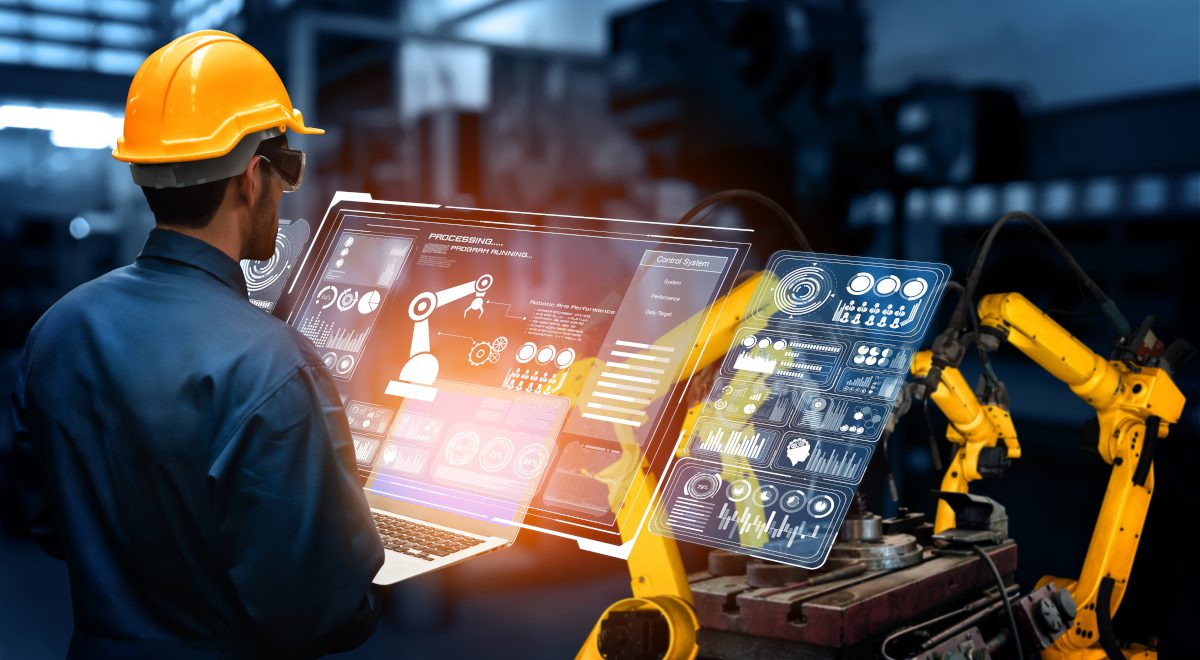
Nearly half (47%) of manufacturers have an active plan underway to invest in digital technology to decarbonise their business
Britain’s manufacturers are powering forward in their digital journey towards Net Zero, according to research published on 18 July by Make UK, the manufacturers’ organisation and Sage, a specialist in cloud business management solutions.
The research – ‘Decarbonisation through Digitalisation’ – seems to show that manufacturing businesses are investing in digital technologies more than ever before and reaping multiple benefits, including productivity increases, product improvements, reduction in waste and labour efficiencies. Productivity has been boosted by the use of a pool of digital tools including data analytics, supply chain management to boost resilience and full automation of business processes including finance, human resources, manufacturing and procurement.
Nearly half of manufacturers have an active plan to invest in digital technologies to decarbonise their business and almost a quarter have already invested in digital solutions. A further 23% plan to do so in the coming 12 months. Some 62% of companies which have already adopted digital technologies into their production processes reported energy cost savings – over half said those savings were between £10,000 and £100,000 the last 12 months. A further 46% said energy savings came in under £10,000 but were still significant to their businesses.
But savings did not end there with companies citing real cost savings on labour, material wastage and water usage. Almost half (44%) of companies surveyed said that digitalisation has been their firm’s top driver of productivity improvements, with production processes tightened up.
The need to reduce carbon is now embedded in most companies’ business plans with a quarter of Britain’s manufacturers believing new digital technologies have already had an impact on decarbonisation and their ability to achieve challenging Net Zero targets. Just one in ten businesses do not believe that digitalisation will have any impact on their Net Zero ambitions.
Of those surveyed, 30% of businesses reported they had already invested in supply chain management digital tools which can reduce emissions and build resilience from delivery disruptions caused by new Brexit trading rules and long-term Covid disruption in Asia.
However, significant barriers to digitalisation remain, with six in ten manufacturers still wary of the upfront cost without accurate timings for return on the investment. Companies (45%) said more evidence on investment return would help drive positive decisions towards the adoption of digital tech as part of their journey towards Net Zero.
Half of manufacturers told us that tax incentives to invest in digital decarbonisation technologies and upskill their current workforce would provide a major boost to uptake. Again, SMEs found taking those first digital steps much harder than larger companies with 64% of smaller firms saying they experience skills shortages while trying to invest and adopt digital tech.
Stephen Phipson, CEO of Make UK, the manufacturers organisation said:
“Britain’s manufacturers have long been at the forefront of digital innovation globally and they have taken significant steps to cut carbon emissions and move towards Net Zero.
But in order to supercharge that journey, business needs Government to play its part in driving the process forward.
“To that end, Government needs to help them move forward faster by committing to a national rollout of the industrial digitalisation programme Made Smarter across the UK and expand its remit to include industrial decarbonisation. Made Smarter has already delivered amazing successes in helping SMEs boost their productivity through digitalisation, and they are ideally placed to pick up the mantle to help decarbonise through digitalisation.
“We need to see an expansion in the R&D tax relief to include capital equipment relating to industrial decarbonisation and the introduction of a Help to Grow Green tax credit to incentivise businesses to take those first active steps to produce goods more sustainably at a time companies are cash-strapped through the burden of higher labour and energy costs. ”








